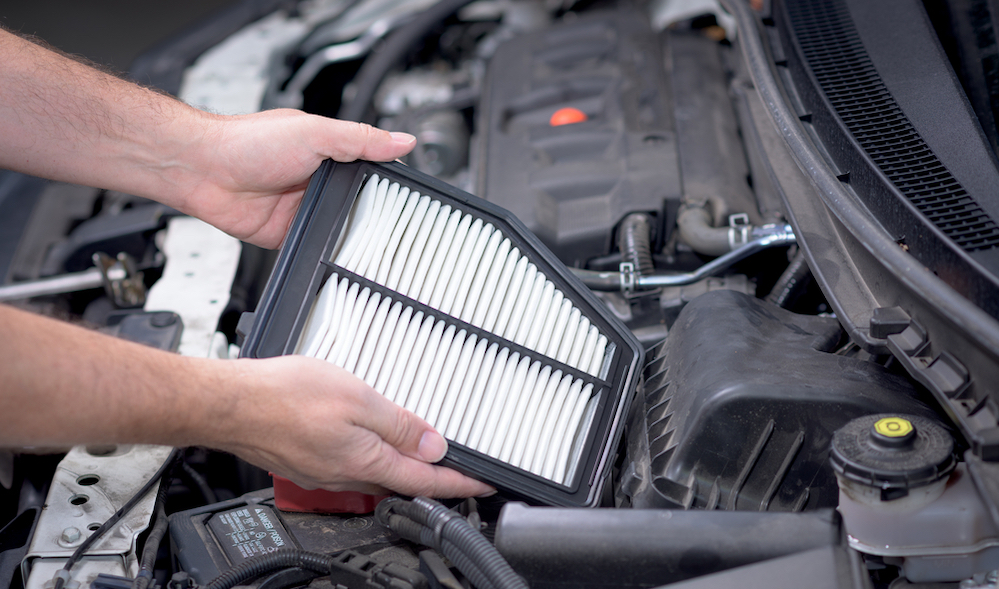If you own a Camry, you probably wonder how often you should change its oil to keep it running smoothly. Changing your oil at the right time can save you from costly repairs and improve your car’s performance.
But with so much conflicting advice out there, it’s easy to feel confused. You’ll discover the simple answer to how often your Camry’s oil needs changing—and why it matters more than you might think. Keep reading to learn the secrets to extending your engine’s life and getting the most out of every drive.
Recommended Oil Change Intervals
Knowing how often to change the oil in your Camry is key to keeping it running well. The recommended oil change intervals help protect the engine and improve performance. These intervals vary based on several factors. Following the right schedule saves money and prevents engine problems.
Manufacturer Guidelines
Toyota provides specific oil change intervals for the Camry in the owner’s manual. Usually, the recommendation is every 5,000 to 10,000 miles. This depends on the type of oil used—conventional or synthetic. Synthetic oils last longer and can extend the interval between changes. The manual also suggests checking the oil level regularly. Sticking to these guidelines ensures the engine stays healthy.
Factors Influencing Frequency
Driving habits affect how often oil changes are needed. Short trips, stop-and-go traffic, and extreme temperatures cause oil to break down faster. Towing heavy loads or driving on dusty roads also wears oil quicker. Older engines may need more frequent changes too. Adjust oil change intervals based on these conditions for best results. Regular oil checks can help decide the right timing.

Credit: www.toyotaofclermont.com
Types Of Oil For Camry
Choosing the right oil for your Toyota Camry is important for its engine health. Oil keeps the engine parts moving smoothly and protects against wear. Different oils offer different benefits. Knowing the types of oil helps you decide the best option for your car.
Using the proper oil type can improve fuel efficiency and engine life. It also affects how often you should change the oil. Let’s explore the common types of oil for a Camry.
Conventional Vs Synthetic
Conventional oil is made from crude oil. It works well for older engines and short drives. It is cheaper but breaks down faster. Synthetic oil is man-made and lasts longer. It handles heat better and cleans the engine.
Synthetic oil costs more but protects the engine more effectively. Many newer Camry models recommend synthetic oil. It keeps the engine running smoothly for longer periods.
Choosing The Right Viscosity
Viscosity means how thick or thin the oil is. It is important for oil flow in the engine. Oil with the right viscosity protects the engine at all temperatures.
Check your Camry’s manual for the recommended viscosity. Common types are 5W-30 or 0W-20. Lower numbers mean thinner oil for cold weather. Higher numbers mean thicker oil for hot weather.
Using the correct viscosity helps your engine start easily and stay protected. It also improves fuel economy and reduces wear over time.
Signs It’s Time For An Oil Change
Knowing when to change the oil in your Camry is important. Oil keeps the engine parts moving smoothly. Over time, oil gets dirty and loses its power. This can harm your engine. Watch for clear signs that show it’s time for an oil change. These signs help you avoid engine troubles and keep your car running well.
Oil Level And Color
Check the oil level regularly. Low oil can damage the engine. Use the dipstick to see the oil level. Clean oil is amber or light brown. Dark or black oil means it is dirty. Thick, sludgy oil shows it needs changing. Fresh oil keeps your engine clean and cool.
Engine Performance Indicators
Pay attention to how your engine runs. A rough or noisy engine can mean old oil. Engine knocking sounds warn of poor lubrication. A drop in fuel efficiency may signal dirty oil. The oil change light on your dashboard is a clear alert. These signs tell you to change the oil soon.
Driving Conditions Affecting Oil Life
Driving conditions play a big role in how long your Camry’s oil lasts. Different types of driving put different stresses on the engine oil. This affects how quickly the oil breaks down and loses its ability to protect the engine. Understanding these conditions helps you change the oil at the right time.
City Vs Highway Driving
City driving means frequent stops and starts. The engine runs at lower temperatures more often. This causes oil to get dirty faster. Short trips also prevent the oil from fully heating up. As a result, moisture and fuel can mix with the oil. This reduces oil life and may require more frequent changes.
Highway driving keeps the engine running at steady speeds. The oil heats up properly and stays cleaner. This helps the oil last longer. In this case, oil changes can be spaced out more. But long highway trips still need regular oil checks.
Extreme Weather Impact
Very hot weather makes engine oil thin and less effective. It can break down faster and lose lubrication power. This means oil needs changing sooner to protect the engine. Cold weather thickens the oil. Thick oil takes longer to circulate and protect engine parts.
Extreme cold can cause oil to clump or sludge. This harms the engine and shortens oil life. Both hot and cold conditions stress the oil. Check oil levels and quality more often during these times.
DIY Vs Professional Oil Change
Changing the oil in your Camry is important for its engine health. You can either do it yourself or hire a professional. Both options have pros and cons. Understanding these can help you make the best choice for your car and budget.
Tools And Materials Needed
For a DIY oil change, gather basic tools. You need a wrench, oil filter wrench, drain pan, funnel, and gloves. Also, buy the correct oil and filter for your Camry. Proper disposal bags for used oil are important too. Professionals bring all tools and materials. They use high-quality products and handle waste properly.
Cost And Convenience Comparison
DIY oil changes save money on labor costs. You pay only for oil and the filter. It takes about 30 to 60 minutes. You control the schedule and process. Professional oil changes cost more. They include labor and proper disposal fees. They save your time and effort. Experts check your car for other issues. Convenience is higher at service centers. No cleanup or tool buying needed.
Consequences Of Neglecting Oil Changes
Neglecting oil changes in a Camry can cause serious problems. Oil keeps the engine parts moving smoothly. Old oil loses its power to protect the engine. Dirt and debris build up inside. This leads to poor engine performance and breakdowns. Understanding the consequences helps you care for your car better.
Engine Wear And Damage
Old oil turns thick and dirty. It cannot lubricate engine parts well. Metal parts rub against each other more. This causes faster wear and damage. Engine parts can overheat and fail. Small problems turn into big repairs fast. Clean oil helps the engine last longer.
Long-term Maintenance Costs
Skipping oil changes saves money only for a short time. Engine damage leads to expensive repairs later. Replacing parts or the whole engine costs much more. Regular oil changes prevent these heavy expenses. Keeping oil fresh means fewer visits to the mechanic. It protects your wallet and your car.
Tips To Extend Oil Life
Extending the life of your Camry’s oil helps protect the engine and saves money. Clean oil means smoother engine performance and fewer repairs. Simple habits and checks can keep oil healthy longer. Let’s explore key tips to make your oil last.
Regular Inspections
Check your oil level often, at least once a month. Use the dipstick to see if oil is low or dirty. Dark, thick oil means it needs changing. Watch for leaks under your car. Early detection of problems keeps oil clean and engine safe.
Driving Habits For Longevity
Drive smoothly without sudden stops or starts. Avoid long idling, which heats oil and breaks it down. Short trips can cause moisture buildup in oil, so combine trips when possible. Keep speeds moderate to reduce engine stress. Gentle driving helps oil stay fresh longer.

Credit: www.communitytoyota.com
Frequently Asked Questions
How Often Should I Change Oil In A Toyota Camry?
Toyota Camry oil change is recommended every 5,000 to 7,500 miles. Follow manufacturer guidelines for best results. Regular oil changes keep the engine healthy and improve performance.
Can Synthetic Oil Extend Camry Oil Change Intervals?
Yes, synthetic oil can extend oil change intervals up to 10,000 miles. It offers better protection and resists breakdown. Always check your Camry’s owner manual before extending intervals.
What Happens If Camry Oil Isn’t Changed Regularly?
Neglecting oil changes leads to engine sludge, wear, and overheating. This can cause costly repairs or engine failure. Regular oil changes keep your Camry running smoothly.
Does Driving Style Affect Camry Oil Change Frequency?
Yes, aggressive driving or frequent short trips require more frequent oil changes. Harsh conditions cause faster oil degradation. Adjust oil change intervals based on your driving habits.
Conclusion
Changing the oil regularly keeps your Camry running smoothly. Most experts suggest every 5,000 to 7,500 miles. Check your owner’s manual for the best schedule. Clean oil helps your engine last longer and work better. Don’t wait too long to change it.
A fresh oil change saves money on repairs later. Simple steps keep your car healthy and safe. Stay on top of oil changes. Your Camry will thank you with better performance.
Disclosure: As an Amazon Associate, I may earn from qualifying purchases at no extra cost to you. Amazon and the Amazon logo are trademarks of Amazon.com, Inc, or its affiliates.

I am Sadman, the founder of CarSensorHub.com, where I share my passion for cars and technology. I specialize in writing detailed reviews and helpful guides on car gadgets, accessories, safety tools and many more. My mission is to help car owners discover the best products and tips to improve their driving experience and stay safe on the road.



